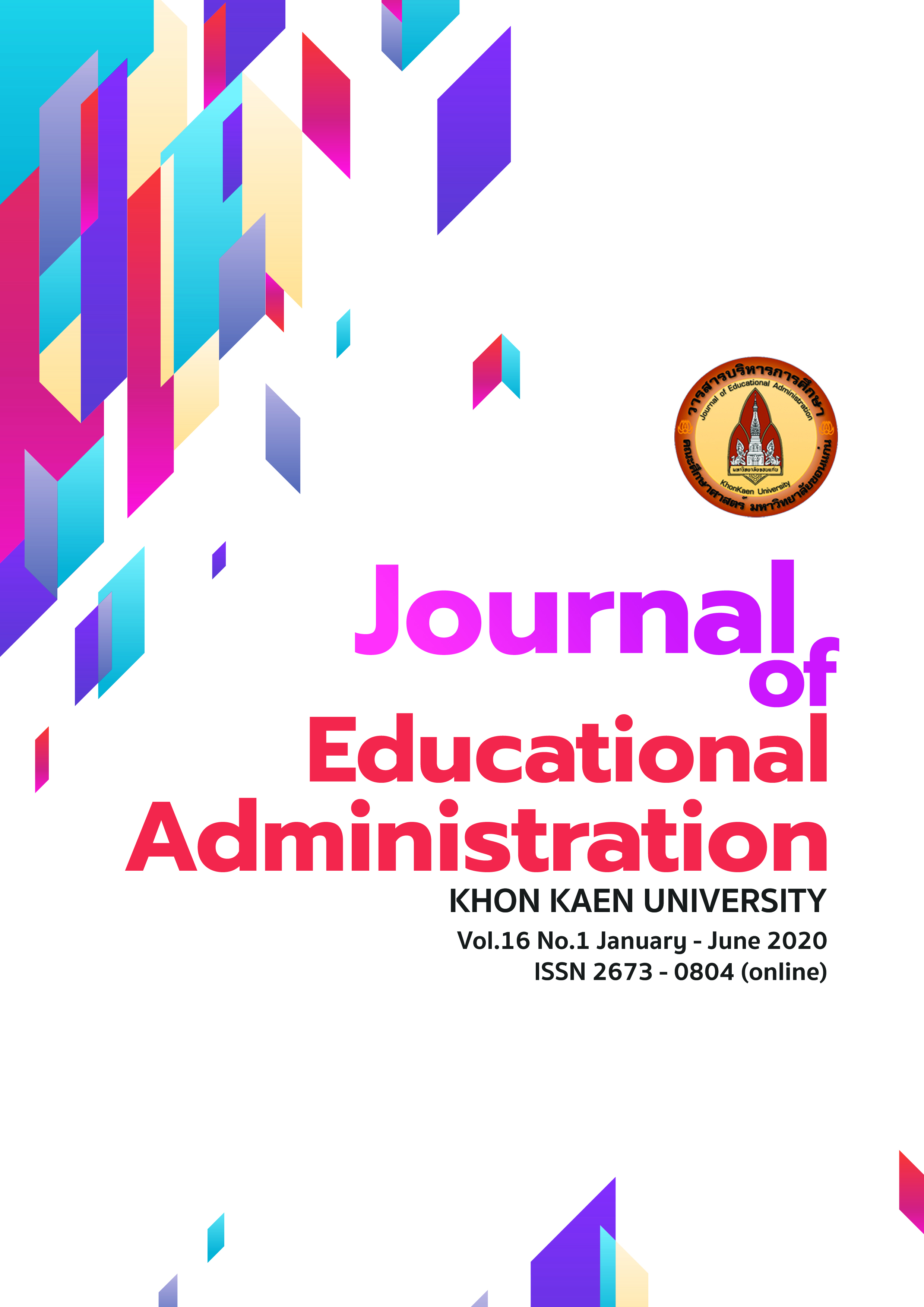THE DEVELOPMENT OF TECHNOLOGY SKILLS IN THE DEVELOPMENT OF PROFESSIONAL LEARNING COMMUNITY AND LEARNING MANAGEMENT OF TEACHER IN SECONDARY SCHOOL UNDER THE OFFICE OF THE SECONDARY EDUCATIONAL SERVICE AREA 28 AND 29
Main Article Content
Abstract
The purposes of this research were ; 1) To study the technology skills in the development of professional learning community and learning management of teacher. 2) To study the relationship factors associated with the technology skills and professional learning community and learning management of teacher. 3) To study the guidelines for developing the technology skills and professional learning community and learning management of teacher. The sample groups consisted of the 350 reponsdents in the Northeastern Thailand and the informants are directors, teachers and educational personnel of the school. The research tool is a questionnaire and the reliability was 0.937. Data were analyzed using factor, frequency, percentage, mean, standard deviation, content analysis and multiple regression analysis.
The research found that; the situation of the technology skills in the development of professional learning community and learning management of teacher has three main components of the professional learning community was overall at a high level ( = 4.38). learning management: overall at a high level ( = 4.33) and technology skills: overall at a high level ( = 4.33). There are elements that have to perform at a high level on all sides. The relationships of these three variables were found; correlated positively the level of statistical significance .01. Guidelines for the technology skills in the development of professional learning community and learning management of teacher: professional learning community and learning management correlated with the technology skills to the same direction. The opinions of experts about guidelines for the technology skills in the development of professional learning community and learning management of teacher found that the experts all agree, and that there is a possibility of leading to the actual implementation in schools.
Article Details
References
ณัฐิกา นครสูงเนิน สมศักดิ์ สีดากุลฤทธิ์ และสมาน พาราสิทธิ์. (2558). ความสัมพันธ์ระหว่างภาวะผู้นำทางวิชาการของผู้บริหารกับการเป็นชุมชนแห่งการเรียนรู้ของโรงเรียนสังกัดสำนักงานเขตพื้นที่กาศึกษาประถมศึกษาเลย เขต1, วารสารวิจัยและพัฒนา มหาวิทยาลัยราชภัฎเลย, 10(31). 7-18.
สำนักวิชาการและมาตรฐานการศึกษา. (2554). แนวทางการจัดการเรียนรู้สู่ประชาคมอาเซียน, กรุงเทพฯ: โรงพิมพ์ชุมชนสหกรณ์การเกษตรแห่งประเทศไทย จำกัด
Adran, M.A., & Hassan, S.S.S. (2015). Promoting interactions in learning Arabic language via learning management
system: a theoretical framework, GESJ: Education Science and Psychology, 2(34), 29-34.
Fullen, M. (2016). Enter Change: The new meaning of educational change (5th ed.). New York: teachers College Press, pp.107-120.
Meechai, C.,. (2014). The Effect of Online Instruction in Industrial Management Information System On Academic
Achievement and Critical Thinking Ability of High Vocational Students, The First Asean Plus Three
Graduate Research Congress. The Frist Forum of the Deans of ASEAN Plus Three Graduate School, 031 , pp. 90.
Paso, C., Charitarasombat, C., & Tirasirarech, W. (2017). Strengthening teacher's learning management for self-
reliance of students in Thai Secondary school, International Education Studies, 10(3), 165-175.
Nash, J. (2009). Computer skills of First-Year Students at a South African University. University of Cape Town: South Africa. [Online]. Available from


